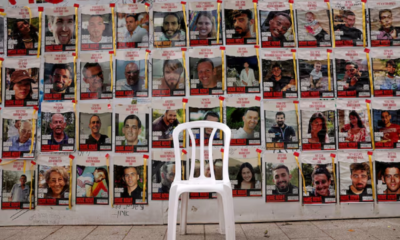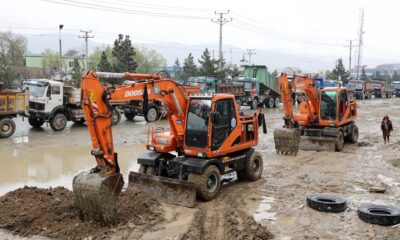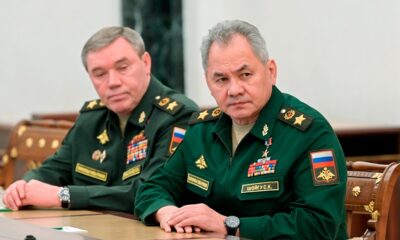Latest News
UN unveils new strategic framework for supporting Afghans

The United Nations in Afghanistan on Monday released its Strategic Framework for Afghanistan for the period 2023-2025 outlining the UN’s approach to addressing basic human needs in the country.
According to a statement, the framework prioritizes the needs and rights of those most vulnerable, including women and girls, children and youth, internally displaced persons, returnees, refugees, and ethnic and religious minorities.
“Our Strategic Framework is a robust offer of assistance to the people of Afghanistan to address their basic human needs and complement the ongoing delivery of lifesaving humanitarian assistance,” said the Special Representative of the Secretary-General for Afghanistan, Roza Otunbayeva.
UNAMA said the UN Strategic Framework was developed in close consultations with Member States, partners, and stakeholders.
The United Nations Country Team and partners have identified three complementary and mutually reinforcing joint priorities as it supports the basic human needs of the Afghan people:
Sustained Essential Services in key sectors such as health, nutrition, education, employment, water, sanitation, hygiene, social protection, and protection that are accessible to all, affordable, and can be delivered free from all forms of discrimination.
Economic Opportunities and Resilient Livelihoods through the creation of an enabling environment that facilitates economic growth and the provision of decent work opportunities, especially for excluded groups such as women.
Social Cohesion, Inclusion, Gender Equality, Human Rights, and the Rule of Law – as prerequisites for sustainable development and peace in Afghanistan – strengthening civil society engagement and advocacy for alignment of Afghanistan’s normative and legal frameworks with international human rights instruments.
“The United Nations and its partners recognize that humanitarian aid alone will not be enough to sustainably address the large-scale and increasing human suffering of the Afghan people in the medium and long term,” said the Deputy Special Representative of the Secretary-General and Resident and Humanitarian Coordinator ad interim, Daniel Endres.
The UN Strategic Framework has a special focus on the delivery of principled assistance in response to the increasingly restrictive environment facing all Afghans, in particular women and girls.
UNAMA said the ban against Afghan women working for the UN adds to earlier restrictions placed on Afghan women and girls: against women working for NGOs, against women working for other diplomatic entities; preventing girls from attending secondary and tertiary education institutions; against girls and women visiting public parks, baths, and gyms.
These and other edicts limit the physical movement of women and girls and their participation in economic, social and public life, it added.
“Whether the UN can fully implement this framework will depend on actions by the de facto authorities and on donor support,” said Endres.
Latest News
Three road construction projects launched in Kabul
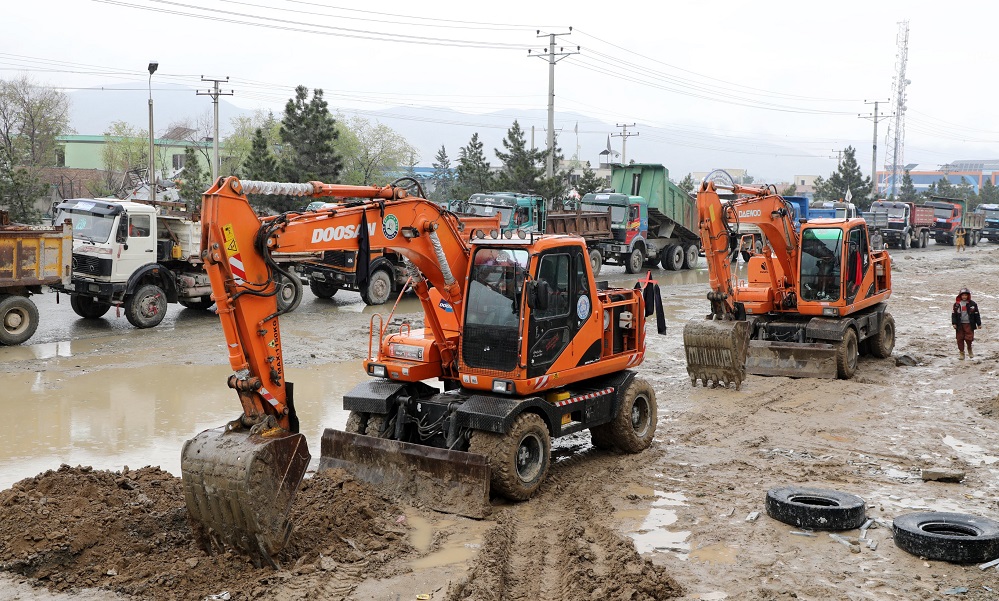
Three road construction projects worth about one billion Afghanis started in capital Kabul on Saturday.
The projects were inaugurated by Deputy Prime Minister for Economic Affairs Mullah Abdul Ghani Baradar.
The projects are: the second phase of Kotal Khairkhane road, the first part of the Shahid square to Qasaba, and the Airport road to Gumruk.
In the inauguration ceremony, Mullah Baradar said that Kabul municipality is working hard to beautify and regulate the city, and people should cooperate with the government in protecting public benefit projects.
He directed the officials of Kabul municipality to complete the mentioned projects on time and with good quality.
The second phase of Kotel Khairkhaneh road is 2.5 kilometers long and 60 meters wide. Thie road will cost 364 million Afghanis and will be completed in 20 months.
The Shahid square-Qasaba road is 1.8 kilometers long and 45 meters wide, which will be built at a cost of 175 million Afghanis in one year.
The Airport-Gumruk road is 2.7 km long and 60 meters wide, which will be completed at a cost of 407 million Afghanis in 20 months.
The projects are funded by Kabul Municipality.
Latest News
Russian defense minister says main threat for SCO countries emanates from Afghanistan
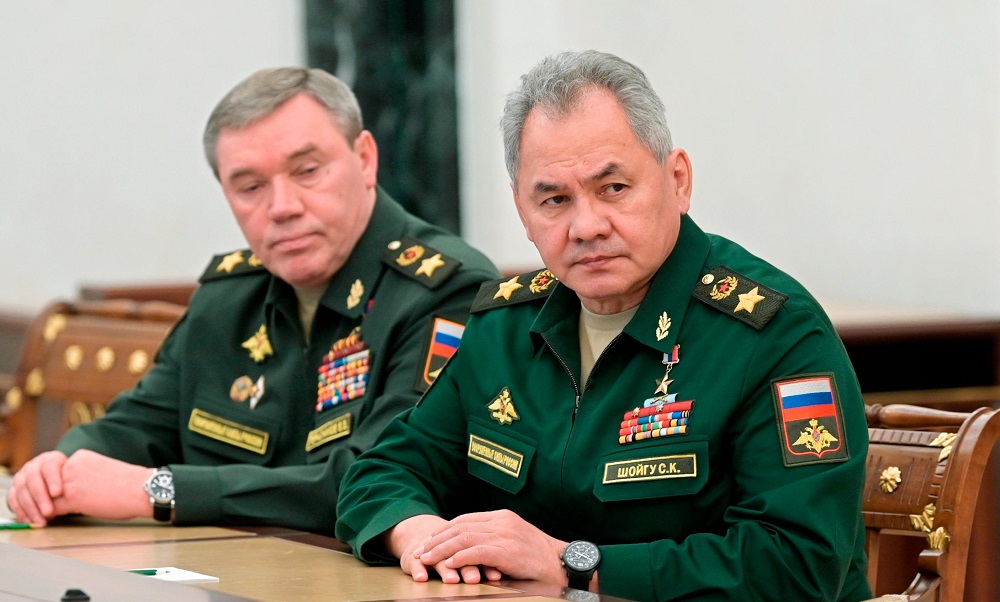
Russian Defense Minister Sergey Shoygu said on Friday that the main threat for the Shanghai Cooperation Organization (SCO) members emanates from Afghanistan where international terrorist groups find shelter due to unstable and indefinite political situation.
Speaking at a meeting of the SCO defense ministers in Kazakhstan’s capital Astana, Shoygu said Washington has stepped up efforts to restore its positions in Central and South Asia that were lost after the withdrawal of coalition troops from Afghanistan, Anadolu Agency reported.
The military chief called “unacceptable” the deployment of the American military infrastructure in the region, arguing that intentions should be regarded as “a direct threat to stability in the SCO space.”
According to him, the US is trying to impose a new security system in the Asia-Pacific region for dominance.
This comes as the Islamic Emirate has repeatedly emphasized that it does not allow anyone to pose threats to any other country from Afghanistan soil.
Recently, Mohammad Yaqub Mujahid, Acting Minister of National Defense Mohammad Yaqub Mujahid said that no destructive groups including Daesh have physical presence in Afghanistan,
Latest News
IEA calls Mujahideen Victory Day ‘freedom day’

In a statement on the occasion of the 32nd anniversary of the victory of the Mujahideen against the then communist government, the Islamic Emirate said that it is a day of freedom of the Afghan nation.
The Islamic Emirate described the coup by People’s Democratic Party of Afghanistan on 27th April 1978 as a dark day in history, as a result of which the people of Afghanistan suffered severe human and financial losses.
The statement said that the Afghan nation suffered huge casualties in their 14-year struggle against the thoughts and actions of the communists, as 1.5 million people died and millions more faced various hardships.
“After 20 years of Jihad, our country was freed from another occupation and the Islamic system was established, so the Islamic Emirate will make its utmost efforts so that the fruits of decades of sacrifice and struggle of this nation are not wasted,” the statement said.
“It was the wish of the martyrs to fully implement the Islamic system in the country, and therefore, the Islamic Emirate is trying to facilitate development and prosperity under the shadow of the Islamic system in order to realize the goals of the Afghan people’s jihads,” it added.
-

 Latest News4 days ago
Latest News4 days agoRashid Khan named AWCC’s brand ambassador
-

 World4 days ago
World4 days agoMalaysian navy helicopters collide in mid-air, 10 killed
-

 Sport4 days ago
Sport4 days agoJaiswal ton powers Rajasthan to big IPL win
-

 World3 days ago
World3 days agoNorth Korea officials visit Iran in a rare public trip
-

 Latest News4 days ago
Latest News4 days agoAt least 1,500 families affected by recent floods: IRW
-

 Sport4 days ago
Sport4 days agoMawj Sahil player scores stunning halfway line goal in 1-0 win over Jawanan Wahedi
-

 Sport3 days ago
Sport3 days ago‘Serious talent’ Fraser-McGurk bonds with Warner to light up IPL
-

 Latest News4 days ago
Latest News4 days agoUS report cites ‘significant deterioration’ in Afghan women’s rights last year




